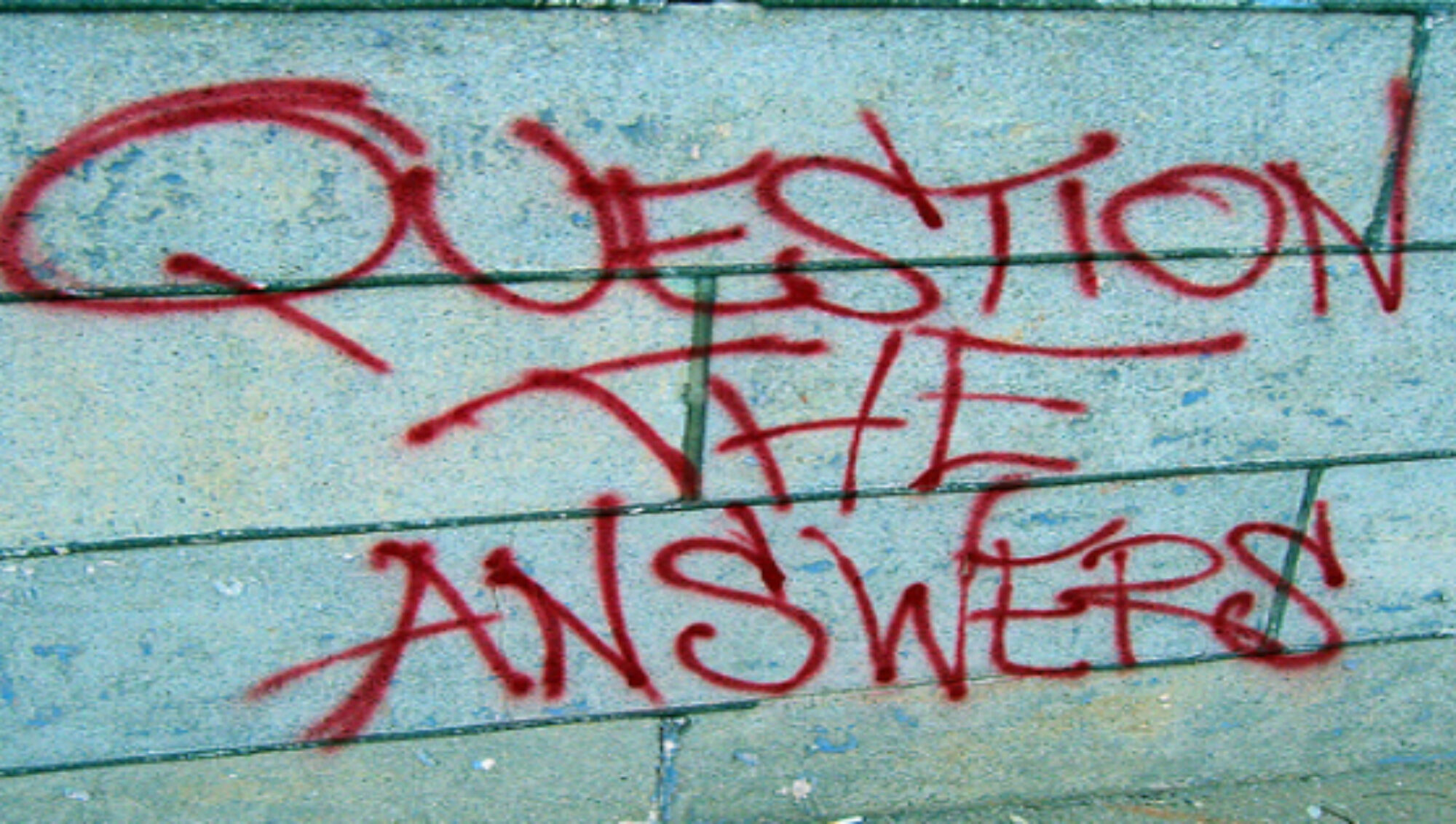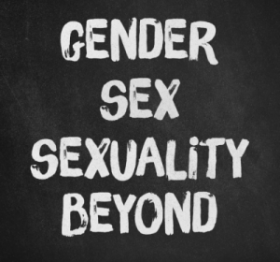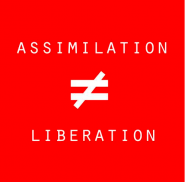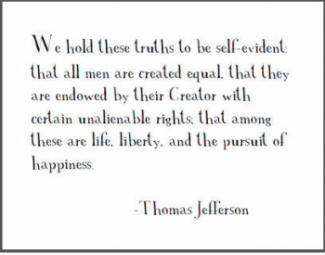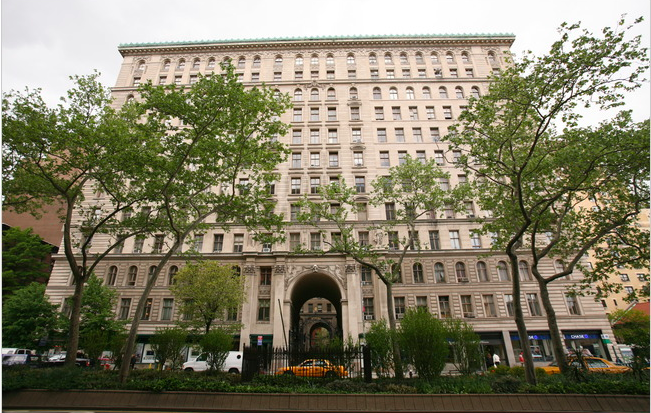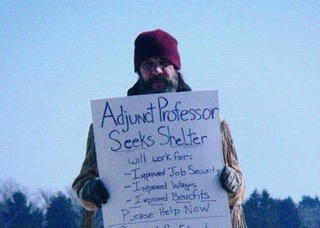Richard W Goldin; Lecturer in Political Science; California State University; thegoldinrule@gmail.com
‘The Gilded Girlz’ Talk about Philosophy
Richard W Goldin; Lecturer in Political Science; California State University; thegoldinrule@gmail.com
Opening the Overton Window: A Strategy for Progressive Political Change
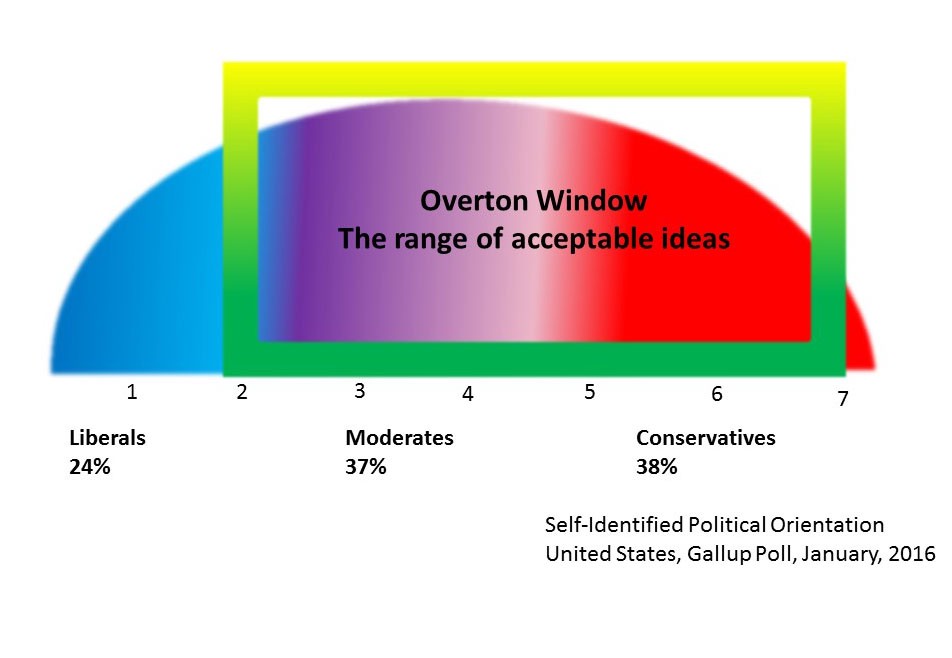 The political right is currently smitten with a concept known as the Overton Window. Named after Joseph P. Overton of the conservative Mackinac Center for Public Policy, the core of the Overton Window is that there are, at any specific time, a particular collection of ideologies, ideas and policies which are acceptable to the general public. This assemblage of legitimacy shifts over time; ideas which were once considered unacceptable can become commonplace.
The political right is currently smitten with a concept known as the Overton Window. Named after Joseph P. Overton of the conservative Mackinac Center for Public Policy, the core of the Overton Window is that there are, at any specific time, a particular collection of ideologies, ideas and policies which are acceptable to the general public. This assemblage of legitimacy shifts over time; ideas which were once considered unacceptable can become commonplace.
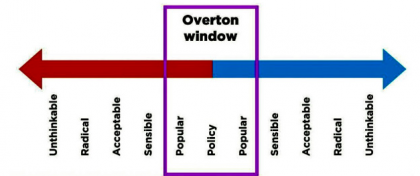
The Overton Window was introduced to many on the Right through a Glenn Beck novel of the same name. (A novel in the sense that it was a bounded stack of paper with words scattered across it.) In Beck’s hyperbolic “faction” an evil genius shifts the window and is able to use the government to bring tyranny to the people.
The alt-right is convinced the nation is in the midst of an immense, anti-tyranny, rightward shift in the Overton Window. Conservatives delight in this movement and the centrality of power which they believe generated it. Liberals, who once also rhapsodized about cultural change when it flowed in their direction, waffle between decrying the shift and arguing for its emulation.
The current composition of the Window will not be altered by a call for structural change, as “democratic socialists” would hope. Shifts in the Window over time are an effect of strategically linking “new” ideas and policies with America’s “fundamental values.” Significant social, political, and economic transformations can be accepted by the public if they are portrayed as conserving more crucial, underlying tenets of American society.
— Political change is all about coding a redesign of the social fabric as necessary to its preservation.
American “fundamental values” emerged from a murky clutter of principles that were shaped by the uniqueness of our history. The political theorist Louis Hartz claimed that America is “exceptional” in that we avoided the feudalism of Europe. His contention is that we were “born equal” – not empirically, but as a shared historical ethos of individual rights, reason, and rationality which still suffuses our culture.
Hartz called our absolute devotion to the principles that we are all reasoning, rational, “self-owning,” sovereign individuals entitled to “life, liberty and the pursuit of happiness” the “American way of life.” He argued that the New Deal succeeded because Franklin Roosevelt was able to code his “radical” reorganization of government as merely pragmatic, rational, responses to existing circumstances. According to Hartz, “[Roosevelt’s] ‘radicalism’ could consist of ‘bold and persistent experimentation’ which…was perfectly compatible with Americanism…Americanism was gospel…and any conscious transgression of it…was highly unpalatable.”
Progressive politics should not be situating itself outside the consensus of “Americanism,” attempting to lure or propel it towards a socialist utopia. A politics for social change should be positioned squarely inside the consensus of American values, using it is a gravitation core to absorb progressive ideas and reshape the Window from within.
Any incantation of “socialism” by the Left runs counter to the broad American consensus of individualism. A progressive politics should work to reinterpret this consensus rather than attempting to undermine it.
In terms of the current corporate configurations of health care, progressives should argue that the nation is witnessing an abandonment of the historical, fundamental, “Americanist” values of individuality upon which the country was founded. It should be emphasized that we are no longer “self-owning.” Instead we are owned by corporations; reduced to mere digits on a spreadsheet. Our health and our lives discounted to fractions of pennies on the bottom line.
Universal health care should be presented as a rational response to defend the essence of individualism our founding fathers gave us. It shouldn’t be framed as a shift in the current fundamental values, but as a necessary protection against their dissolution. Those pressing for universal health care, and a deeper anti-capitalist agenda, should point to the loss of the individual as a fundamental danger – a looming specter requiring practical, rational “defenses.”
The battle for progress will not be won on the terrain of the visionary. Moving forward depends on morphing the future into the past. In a viable progressive politics, everything new is old again.
–RWG–
Richard W Goldin, Lecturer in Political Science; California State University; thegoldinrule@gmail.com
The Politics of Simulation
Just outside of Los Angeles is a movie set known as Paramount Ranch. The ranch is a well-used filming location; its buildings appear so often in western-themed movies and TV shows their familiarity can become an annoying distraction.
When the set isn’t being used for filming, it’s open to the general public. You can roam the same streets traversed by The Dukes of Hazzard, Dr. Quinn, Medicine Woman, and the robots of Westworld.
As you wander through the set (it takes about four minutes, if you walk slowly) it becomes obvious that the “buildings” have no solidity; they are mere facades. As one-dimensional as some of the films shot there. (No offense to The Flintstones in Viva Rock Vegas.)
Paramount Ranch is useful because its facades can be made to simulate any aspect of our shared imagery of the west. These images don’t necessarily represent any actual frontier town; it is their iconic familiarity that makes the fictionalized appear authentically western to us.
The general sense we have of the underlying simulative aspects of films and advertising can distract us from the pervasiveness of imagery in our own lives. A simulation is a sleight of hand; a misdirection into the realm of imagery and representation. It is a world in which nothing is as it seems.
Simulations hinder our ability to differentiate between truth and reality, allowing the powerful to engage in stagecraft which comforts us, but conceals intentions and objectives. Our current politics has become a realm of symbolism and metaphor with little substance.
Though the political has historically functioned as a territory of sorcery and enchantment, our current vortex of illusion emerged fairly recently. In the 1980 presidential election millions of Americans were convinced that “trickle-down” economics represented a spirit of “free enterprise” which would financially benefit all.
However, the ocean of wealth that flowed to the few drizzled barely a drop down to the many. Those in power realized they could separate the metaphor of “free enterprise” from the actuality of its outcomes, and that even those most harmed would yield to a symbolic American freedom authenticated through economic inequality.
‘Governing today means giving acceptable signs of credibility. It is like advertising and it is the same effect that is achieved – commitment to a scenario.’ Jean Baudrillard
The resultant division between the 1% and everyone else has been maintained not through overt repression but through simulations of openness and inclusion in the political process. The forces of hierarchy persist behind the pageantry of democracy.
Every town hall meeting conducted by a reluctant politician relies on the symbolic. Familiar elements are deployed which, in some way, represent “open discussion” to those attending – a public forum, time for questions, and so forth.
The extent to which a member of Congress actually thinks about what is being said by their constituents is dubious at best. Politicians at these meetings often have the pained expression of someone who’s been given number 88 at the DMV and just heard the loudspeaker announce “3.”
It doesn’t matter. Politicians and constituents aren’t engaged in deliberation; they’re performing a ritual. Everyone plays their role. Those in attendance dutifully ask specific questions and politicians flee along a circuitous route avoiding any meaningful responses. The process repeats: pointed question followed by rhetorical sidestep. This is the familiar script. Constituents leave the meetings believing they’ve engaged in deliberation, but they were really part of a theater-in-the-round production touring the country.
Town hall meetings are simulations; they are phantoms of an ideal of civic engagement that exists only in the symbolic. The meetings are artful veneers; the familiarity of their iconography provides the illusion of speaking to power. The ritual replaces the real.
Presidential debates are the pinnacle of contrivance. As in town hall meetings, the theatrical overwhelms the substantive.
Watching debates, we are seduced by the ceremonial. Candidates hover behind phallic lecterns of power; journalists sit passively at tables earnestly lobbing questions which inevitably disappear into labyrinths of pointless phrases and hollow rhetoric. Myriad rules on speaking time and the structure of responses fabricate a phantasm of substance. As we watch the debates, we are aware of the emptiness of the liturgy but remain captivated by its incantations.
In the 2016 presidential debates we were absorbed into a clash of the unreal. One candidate was so formularized everything she did seemed like an ironic parody of how a simulated politician acts. She lost to the hate-child of George Wallace and Huey Long – a tiny-handed flimflam who brayed the familiar libretto of the demagogue. Our “democratic election” was a contest between wizards of Oz; two illusory floating heads distracting us from the void behind the curtain.
Donald Trump is the most virulent political creature to emerge from our Orwellian lagoon. He has embraced politics as art(ifice). Democracy becomes a musical where the plot and dialogue don’t matter as long as the songs are catchy.
Trump is angered when people refuse to hum his incendiary tunes and instead focus on the actual lyrics. For the president, the meeting in Helsinki with Putin was a dazzling success; it may have been a political disaster but it had all the markings of a Tony award winning production.
Trump believes that, in politics, the spectacle is sufficient. He may be right.
Simulations maintain inequality by mollifying the public. We willingly acquiesce to a democracy in which inequality is fueled by a symbolic freedom and perpetuated through the pageantry of participation. But we are not merely spectators, we are also the actors. We have the potential to end these simulations by refusing to participate in them.
The powerful maintain their position by turning all the world into a stage. We can no longer be merely players.
–RWG–
Richard W Goldin, Lecturer in Political Science; California State University; thegoldinrule@gmail.com
Taking the Gay Out of Gay Politics
The claim that a group’s “rights” are being violated is a long-standing form of identity politics which aims to protect the marginalized from unwanted incursions of power. Though rights often seem the only tool available to combat oppression, the identities they generate are constructs of exclusion and constraint.
The application of rights requires that there be an existing group in need of protections. This group is politically defined by its list of “shared” grievances. Determining this list of grievances – the rights which will delineate the group’s oppression – inevitably engenders a central authority.
During the 2016 campaign, Bernie Sanders referred to Planned Parenthood and the Human Rights Campaign (HRC) as being “ part of the establishment.” The comments generated a significant debate within the Democratic Party as to what substantively separates establishment from margin. But the division is not a matter of evaluating different policy goals; “establishment” refers to which organization’s list of grievances is shaping the marginalized identity and its “rights.”
The recent politics of the HRC exemplifies the highly constraining effects when “rights” are joined with assimilationist goals. Historically, gay politics attempted to open spaces for alternate forms of social and personal relations. Problematizing the naturalness of sexual norms was seen as an important contribution of non-dominant sexualities. In contrast, the HRC offered only the right to assimilate into those norms.
The power exhibited by the HRC was not merely the triumph of gay marriage and military service. Their power rested in their ability to utilize these goals to shape a new “gay” identity and institute different standards of “appropriate” behavior. All those who had argued for different forms of living, were now re-cast as foot-soldiers on the inevitable march to military, marriage, and monogamy.
Rights-based politics protects only those who are in agreement with the specific types of rights being sought. Those who seek to destabilize institutional and sexual norms are deprived of a political or social space, or even a recognized existence, within the new “gay politics.” The sexuality of the 1970s is now the Upside Down of gay identity. A shadowy repudiated remnant; a lurking danger to the new well-scrubbed identity of weddings and baby strollers.
There have been a number of theorists who have criticized the exclusionary aspects of “rights” politics and have argued for the dissolution of all identity categories. This dissolution is far different than the HRC path in which the marginalized group is dissolved into the now-strengthened dominant identity.
In her book Gender Trouble, Judith Butler wrote, of feminist politics, “feminist critique ought…to understand how the category of ‘women,’ the subject of feminism, is produced and restrained by the very structures of power through which emancipation is sought.” Butler claimed that the contemporary feminist category of “women” is constructed, restrictive, and exclusionary. She argued, instead, for deconstructing – not protecting and multiplying – the categories that define and separate people.
Butler claimed that “if politics [was] no longer understood as a set of practices derived from the alleged interests that belong to a set of ready-made subjects, a new configuration of politics would surely emerge from the ruins of the old.” Butler offered no details of a sexual utopia; she gave no political roadmap to the new configuration.
This ambiguity is off-putting to many of those currently engaged in gay politics who prefer the well-trodden path of “rights.” The result has been a progressivism which continuously chases its own tail; re-fighting the same rights-based identity battles every decade.
The HRC focused on shaping a rights-protected sexual identity that was acceptable within dominant institutions. But successive generations of young people are performing Butler; appearing less and less tied to any identity categories. The generational views on homosexuality have shifted from claims of toleration based on a fixed identity, to the disappearance of sexuality as a marker of identity. “Homosexuality” and “heterosexuality” become indistinguishable within the malleable flow of desires.
The same attitudinal shifts can be seen towards gender. Younger generations are far more open to an elasticity which may render the current male/female binaries as archaic relics. Race has become so multi-faceted that any attempt by the U.S. Census to appear more inclusive through additional identity categories is attacked as exclusive and restrictive.
The emerging “trans” movement has the potential to further deconstruct identity categories. Or it might result in a series of internecine battles which will define the new “trans identity” and its rights-based protections.
Progressive politics should not be supporting constructions of identity by any centralized power, nor should it be participating in the imposition of norms of behavior. Progressivism should seek ways to further the dissolution of all identities and to end the politics of assimilation.
The arguments for “rights” are more than three hundred years old, yet activists remain solely reliant on them. Central organizations, whose existence and power is dependent on rights-based politics, will continue to ignore the politics of non-identity espoused by theorists such as Butler. But if the cultural dissolution of identity categories continues, rights-based politics will slowly sink into the shifting sands of irrelevance.
–RWG–
Richard W Goldin, Lecturer in Political Science; California State University; thegoldinrule@gmail.com
There Are No “Self-Evident Truths” in Politics
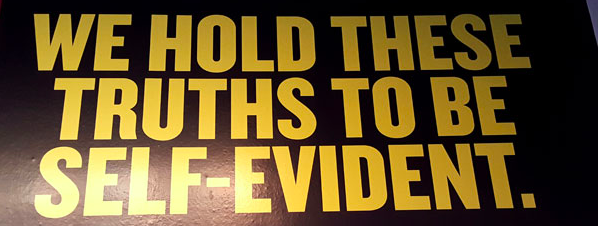
The pre-amble to the Declaration of Independence begins with the phrase “we hold these truths to be self-evident.” This early promise of an America which accurately mirrors widely agreed-upon fundamental principles looks nothing like our current politics. “Self-evident truths” have not resulted in shared agreement; instead claims of their existence have led to a cauldron of polemical contestations. Why did this happen?
Though the Declaration’s assertion of “self-evident truths” was strategically useful in fomenting and justifying the American Revolution, attempting to use these truths as a basis for governance has proven to be very unstable and highly contentious. This instability is not caused by the lack of reason in any particular subset of the population; it will not be resolved by repeatedly calling into question the rationality of those on the other side of an issue.
The existence of self-evident truths has never been self-evident. They were the effect of a long philosophical lineage, emerging in the 17th century as both political theory and revolutionary strategy. The founding fathers had access to a wide range of political philosophy texts. The Declaration of Independence reads as a concise summation of English theorist John Locke’s Second Treatise of Government, written in 1690. In Locke’s text, fundamental principles he called “natural laws” function well abstractly, but falter when people attempt to implement them.
In Lockean theory, a hypothetical pre-governmental society (a “state of nature”) starts out stable and harmonious with almost all people understanding Natural Law. But Locke wasn’t content with asserting that people know these laws; he also believed that individuals had the right to execute them – to apply them. While asserting that most people would be objective in these applications – almost all are endowed with the rationality required to perceive natural laws – Locke also acknowledged that individuals who were “party to a dispute” would be partial in their own case. This is where his – and our – problems begin.
To Locke, “party to a dispute” is the crucial factor which impinges on our ability to be objective. Though, at the beginning of his treatise, being a “party” is limited to the few individuals who are materially affected by a dispute, unresolvable disagreements become wide-spread and his state of nature descends into a state of war. Locke doesn’t explicitly tell us why this occurs.
Locke believed that by limiting the subjective aspects of applying natural laws to those who were “party to a dispute, ” impartial outcomes would emerge from those not directly affected by the contested issue. But this doesn’t happen in his text or in our politics. Why not?
Consider the following hypothetical situation: You receive a speeding ticket while driving to work. You enter your workplace enraged, recounting to everyone how you were mistreated by the police and, perhaps, you throw in a few charges of tyranny. Your co-workers calmly reply that you are too closely tied to the situation and far too emotional; that what the police did was a perfectly reasonable enforcement of necessary laws. In Locke’s formulation, you should rely on the objectivity of your co-workers over your own since they were not directly affected by the outcome. Though you are convinced of your own position, you are too personally and materially connected to be objective.
Let’s expand the hypothetical. In further conversations you discover that almost all your co-workers supported the office manager when he implemented a number of strict rules regarding proper attire, lunch breaks, and acceptable coffee mugs. In their responses to you, many indicated your complaints of maltreatment must be false, repeating the phrase “the police would never do such a thing.”
These individuals conform to Locke’s strict criteria in terms of not being a “party to the dispute, but their objectivity is uncertain. Perhaps their judgments are based on objective, analytical examinations of the specific details surrounding your ticket; or perhaps they come to the discussion pre-disposed to believe strongly in authority, stability, and rules, and only think they are being objective. Would you be able to tell the difference with any degree of certainty? Would they?
In our current politics the kinds of bounded, material disputes Locke envisioned have been overlaid with contentious disagreements over the larger concepts (freedom, equality, justice, etc.) the disputes are believed to represent. We are all a party to these kinds of conflicts; they are no longer about specifics but, rather, what the specifics signify.
We remain prisoners of the promises offered by the Declaration of Independence, but our politics functions within the uncertainty between knowledge and perspective. We want to believe in the existence of self-evident truths, but have little idea how to determine their content or shape a society around them.
Once Locke acknowledged the subjectivity of implementation, he could never return to the objectivity of natural law he had first relied on. Neither can we.
–RWG–
Richard W Goldin, Lecturer in Political Science; California State University; thegoldinrule@gmail.com
An Apthorp Story
When your childhood home becomes an object of desire for the wealthy
Years ago, my family fled the hinterlands of New Jersey and rediscovered civilization on the Upper West Side of Manhattan. We lived in the Apthorp, an architecturally grand building which, at that time, had suffered from years of neglect – most visible in its soot-streaked façade and the accumulated layers of paint which cloaked its interior wood surfaces. But rents were very reasonable and my mother, who worked as a legal secretary, was able to afford an apartment.
The Upper West Side B.R. (Before Reagan) was a welcome escape from the unrelenting homogeneity of the suburbs. The neighborhood was a mixture of economic classes, all sharing the same public spaces and shopping at the same local stores. Weekday mornings I rode the 79th street crosstown bus to school; a route through the affluent apartment buildings of Riverside Drive and West End Avenue, past the Woolworth’s and its second-story pool hall on Broadway, the run-down brownstones of Amsterdam and Columbus, and into wealth once again and the pre-war apartments of Central Park West.
Due to its affordability, the Apthorp was home to a variety of tenants. My mother often told me of conversations she’d had on the elevator with the author Joseph Heller as he was taking his dog out for a walk. My mother was always surprised and delighted by these encounters; for me this crossing of paths came to represent the essence of a “city.”
Decades after moving away from New York City, I was recently again on the crosstown bus, retracing the familiar route to the Apthorp. The dilapidated facades of Columbus and Amsterdam were gone, as were the poorer people who had lived behind them. The pool hall had vanished along with the Woolworth’s. Each street flowed undifferentiated into the next. Neighborhood stores had been replaced by those peddling corporatized symbols of wealth.
The Apthorp had been converted to condominiums in 2008; formerly affordable rental apartments were now multi-million dollar investments. In my memory, the building’s courtyard had always been a place of serenity during weekday afternoons. Parents were still at work; kids not yet back from school. But now, as I stood outside the gate, the courtyard buzzed with a frenetic movement of aides, assistants and various hangers-on.
Severed from its history as an affordable home, the Apthorp had been “born again” as a timeless object of desire for the wealthy. The millions of dollars necessary to live there are on constant display; gleaming marble, walls of wood, and an overall aesthetic of opulence typical of a Las Vegas hotel shopping mall.
The transformation of the Apthorp is an effect of the wealthy deciding where to live based on which neighborhoods best function as signifiers of a lofty economic status. The Upper West Side had once been anathema to the moneyed canyons of the Upper East Side. Back then, the desirability of the Apthorp – its pre-war details, large rooms and high ceilings – was negated by its lack of an appropriate affluence-indicating location. But once the West Side was deemed acceptable by the wealthy, a wave of money flowed across Central Park. The Apthorp was suddenly re-discovered and could assume its current role as an object of admiration and longing.
The Apthorp is now a shiny bauble. You no longer buy a home there; you purchase the envy of others. This is one of the little-discussed effects of gentrification. Great wealth transforms objects which are of utility for many into highly-desirable representations of privilege for the few. The Apthorp is just such a representation; the functionality of living there has mutated from the usefulness of a home, to an ostentatious, and highly restrictive, sign of financial supremacy.
‘An object’s functionality is the very thing that enables it to transcend its main ‘function’…to become…an adjustable item within a universe of signs.’
Jean Baudrillard
As I stood at the gated entrance, peering into the central courtyard, I realized that if I shifted my weight to my left leg, dropped my shoulder and tilted my head, I could partially see the windows of what had been our apartment. How many others, I wondered, had stood here, like ghosts, contorting themselves for a glimpse of something which no longer exists?
The Apthorp – the New York City – I remember, has disappeared. But it endures in the shared stories of what was and what has been lost. In mine, the Apthorp is a bit dirty and dingy. Across the street, people are shopping at the Woolworth’s and playing pool late into the night; and my mother is having an engaging conversation with Joseph Heller while his dog waits patiently for the elevator doors to open.
–RWG–
Richard W Goldin, Lecturer in Political Science; California State University; thegoldinrule@gmail.com
Interpretations (of Facts) Matter
There has been a continuous clamor from the broad swath of political commentators lamenting the disappearance of Truth and Facts in our political discourse. Much of this critique is aimed at the Right generally, Trump supporters in particular, and is always accompanied by some form of eye-rolling exasperation. But, as often happens, the polemics over “alternative facts” have obscured any consideration of the ways in which “truth” and “facts” actually function in our politics.
The Right has correctly perceived that politics is not the direct application of empirical facts to governmental policies. The programs and policies which impact individuals are often an amalgamation of facts, the interpretations of those facts and the political usages of those interpretations. The connections between empirical data and political implementation are highly malleable, often vague, and occasionally non-existent.
The malleability of the connections between social/economic facts and their political applications does not signify the death of facts themselves; it is an effect of the complexity of the issues being argued. Complex webs of facts cannot be easily mapped onto equally complex webs of political and economic relations. The more multi-faceted the issue being discussed, the greater the necessity for strategies of implementation, and the interpretations which support them.
The mistake of the Right is to view malleability as a sign that empirical facts no longer exist, that any evidentiary-based argument is false on its face. This misunderstanding is why some on the Right pursue dissimulation of crowd size with the same fervor as interpretations of social and economic policy.
Both the Left and the Right ignore the effects of social complexity on the politics of factual claims. As complexity increases, a point may be reached in which the facts are no longer discernible from the political battles over the meanings attached to them. The political theorist Murray Edelman noted, “political developments and the language that describes them are ambiguous because the aspects of event, leaders, and policies that most decisively affect current and future well-being are uncertain, unknowable, and the focus of disputed claims and competing symbols.”
‘A fact is always embedded in a theory and has to be interpreted.’
Murray Edelman
In Edelman’s view “political language is political reality; there is no other so far as the meaning of events to actors and spectators is concerned.” All “truth” is that which “actors and spectators” – all of us – experience as we attempt to make our way through a political world in which “the critical element…for advantage is the creation of meaning.”
The embedding of a fact in a theory is not its disappearance; it is a necessary element of implementation. For empirical “facts,” such as those pointing to economic inequality, to be politically useful they must be woven into an existing tapestry of “justice” and “fairness.” Politics is a series of battles in which all sides struggle to re-shape the tapestry and give meaning to the facts.
By decrying the very existence of facts, the Right has absented itself from the battles over their meaning. Progressives need to seize this opportunity. Continuing to present analyses and evidence to verify the existence of a particular set of facts is not sufficient; decrying those who don’t see those facts as being naïve is not a politics.
Social movements are not simply trains running along the tracks of facts. Progressives must transform their most cherished “facts” into politically useful tools. The struggle for social change isn’t determined by the “truth,” but by the battles over its meaning.
–RWG–
Richard W Goldin, Lecturer in Political Science; California State University; thegoldinrule@gmail.com
Professors in Charge: The Lessons for Progressive Politics
At the heart of the progressive movement is the firm belief that, if given power and a degree of control over others, progressives would never replicate the kinds of social and economic inequalities exalted in by the Right. A large-scale test of that claim has been ongoing in our universities for the last twenty years. The results are an illuminating account of the intransigence of inequality and a disturbing demonstration of what actually happens when you give a small group of highly educated, self-identified progressives power over the lives and well-being of others.
Within academia, one of the supposedly most liberal groups in America – tenured university professors – maintain and enforce a strict hierarchy over part-time, contingent faculty known as adjuncts. This is a form of inequality which has become so normalized in universities that those who perpetuate it truly believe they are the kind of people who would never do such a thing. The workings of this academic hierarchy reveal progressivism’s fundamental misunderstanding of how inequalities are continuously constructed, justified and enforced – even by those who are unwaveringly attached to their own progressives convictions.
For the last few decades, university administrations have been replacing the majority of tenured faculty positions with lowly paid adjuncts. As a result, an economic division emerged within faculties between a small number of well-paid tenured professors and a larger class of poorly-paid, contingent, part-time adjuncts who are not eligible for tenure, have little to no job security, and no opportunity for advancement.
Tenured faculty didn’t create the original division; they were handed an existing financial inequality which they then had the ability to either ameliorate or exacerbate within the boundaries of departmental discretion. What has emerged is a highly stratified, highly rationalized, hierarchy within departments in which adjuncts are viewed as naturally deserving less than tenured faculty and are given virtually no input or consideration in the decisions which directly affect their lives. The continuing rationalization of this hierarchy of individual value and worth undercuts a basic progressive belief that the tendencies to construct and maintain inequalities are mitigated by education, income and liberal self-identification.
‘[The] success [of power] is proportional to its ability to hide its own mechanisms.’
Michel Foucault
The rationalization of the faculty class structure is indicative of the cultures of inequality which persist at all social and economic levels. The more a constructed power relation is allowed to morph into normalcy the more insidious the inequalities it generates. The philosopher Michel Foucault claimed that “the real political task in a society such as ours is to criticize the workings of institutions which appear to be both neutral and independent; to criticize and attack them in such a manner that the political violence which has always exercised itself obscurely through them will be unmasked, so that one can fight against them.” Without a complete exposure and fracturing of cultures of inequality – wherever they occur – a progressive political movement aiming for large-scale social change runs the risk of ultimately reinforcing inequalities which have become naturalized and rendered invisible.
During the 2016 presidential campaign Senator Bernie Sanders spoke passionately about the role of government in providing free college tuition for all. However, the Senator never denounced the impoverishment and marginalization of adjuncts even though challenging those kinds of constructed social and economic hierarchies formed the basis of much of his campaign. The effect would have been a highly progressive program which validated and reinforced the very kinds of inequalities it was designed to undermine.
An effective progressive politics must aim to expose and deconstruct all cultures of inequality, whatever the economic class or political identification of those who perpetuate them. To allow the rationalization of inequality anywhere is to validate it everywhere.
–RWG–
